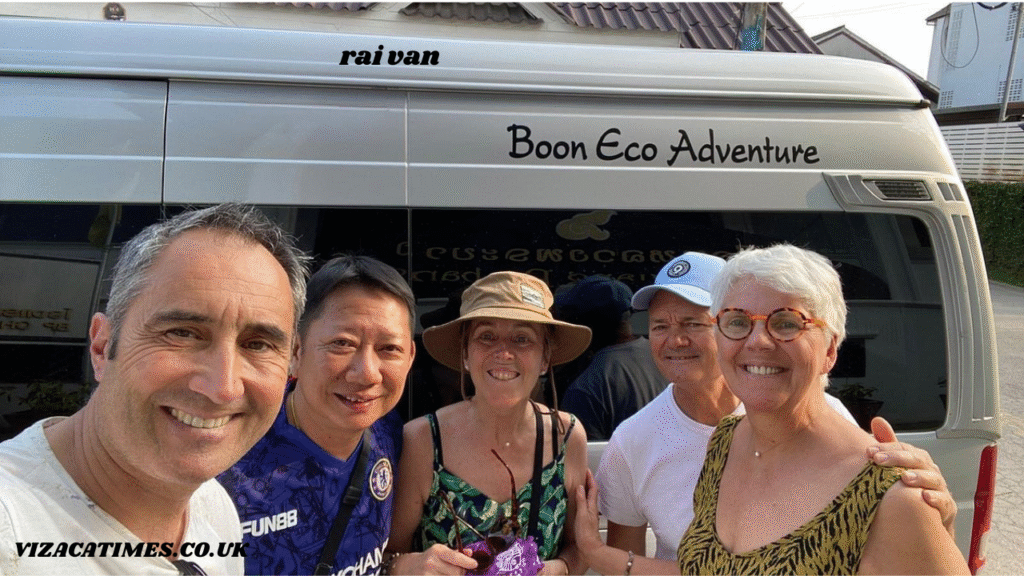Rai Van, ?? – Exploring the Cultural, Linguistic, and Interpretative Dimensions of “Rai Van”

Introduction to “Rai Van, ??” – A Phrase of Mystery and Cultural Intrigue
The phrase “rai van” may appear simple at first glance, yet when followed by “??”, it transforms into an intriguing subject of speculation. Whether it evokes images of poetic language, a cultural expression, or something encoded in deeper meaning, “rai van” holds the kind of layered mystery that demands exploration. In this article, we will dissect the phrase through multiple perspectives—linguistic, cultural, speculative, philosophical, and even artistic—asking ourselves: what could “rai van, ??” really mean?
Linguistic Roots of “Rai Van” – Analyzing the Words Independently

Let us start by breaking the phrase into its two components:
- “Rai”: This syllable appears across multiple languages and cultures. In Hindi and Urdu, rai means “opinion” or “advice.” In Vietnamese, Rai is a personal name. In Arabic contexts, rai refers to a genre of Algerian folk music.
- “Van”: This is also a versatile word. In English, it may denote a type of vehicle. In Dutch, van is a preposition meaning “of” or “from,” and is used in surnames. In Vietnamese, Văn (with tonal notation) can mean “literature” or “culture.”
Put together without cultural or grammatical clarity, “rai van” is ambiguous but poetically potent. It could hint at “opinion of literature,” “folk culture of the van,” or even something as abstract as “voice from the outside.”
Cultural Speculations – “Rai Van” as a Reflection of Identity

The pairing “rai van” may not simply be a random construction. It could represent:
- A hybrid identity: The fusion of two linguistic worlds, symbolizing the global cultural melting pot.
- A poetic or artistic pseudonym: Much like “Voltaire” or “Banksy,” “rai van” could be a chosen name for an artist, writer, or thinker whose identity is secondary to their message.
- A cryptic brand: It could refer to a creative enterprise, music group, or community project that intentionally embraces vagueness to evoke curiosity and philosophical engagement.
Seen in this way, “rai van” becomes less of a direct term and more of a mirror to society—what you see in it depends on what you bring to it.
“Rai Van, ??” – Decoding the Question Marks

The addition of “??” at the end of the phrase adds a dimension of uncertainty, inquiry, or existential pondering. These symbols may represent:
- An incomplete thought: Suggesting the phrase is only a fragment of something larger, waiting to be completed by the reader.
- A question of identity: As if the writer is uncertain about the meaning of “rai van” and is opening it up to interpretation.
- Mystery as method: The question marks may function not as confusion, but as invitation—inviting us to question, explore, and define the phrase for ourselves.
In semiotic terms, “??” is not just punctuation—it’s an open door.
Philosophical Interpretations – Could “Rai Van” Be a Concept?
Imagine “rai van” as a new philosophical idea or school of thought. Some possibilities include:
- The Rai Van Principle: The notion that meaning is constructed from the interaction of unrelated ideas—“rai” (opinion/music) + “van” (vehicle/language).
- Rai Van Theory: A cultural hypothesis where abstract identity is built on the blending of artistic and societal vehicles of expression.
- Rai Van Aestheticism: A literary or artistic movement where ambiguity is celebrated as a pathway to insight.
The phrase could represent a conceptual framework, one that deliberately strays from rigid definition in favor of emotional and intellectual participation.
Literary Applications – “Rai Van” in Fiction and Poetry
Writers might use “rai van” as a character name, a location, or a poetic motif. Imagine the following literary uses:
- A character named Rai Van, living in a liminal world between cultures, carrying dual heritages.
- A village called Rai Van, representing a mystical space where tradition and modernity blur.
- A poem titled “Rai Van”, expressing themes of identity, loss, and rediscovery.
The term has an inherently mythical quality—something that exists in imagination more than in dictionary entries.
Artistic Representations – “Rai Van” in Visual and Musical Forms
From an artistic perspective, “rai van” could lend itself to experimental expression:
- In music: A fusion genre, combining Algerian Rai with Vietnamese instruments, forming a new sound labeled “Rai Van.”
- In visual art: Abstract work using dual tones or mirrored shapes to depict internal versus external identity.
- In design: A minimalist label or logo titled “Rai Van??” capturing attention with clean ambiguity.
Such representations transform the phrase from language to sensation, enabling it to resonate beyond literal interpretation.
Social Commentary – “Rai Van” as a Symbol of Global Dialogue
In today’s interconnected yet divided world, “rai van” could serve as a symbol of unity through ambiguity. It might stand for:
- Multicultural conversation: Where the blending of languages, customs, and opinions forms a more inclusive worldview.
- The uncertainty of modern identity: As global migration, digital presence, and cultural complexity evolve, “rai van” becomes a metaphor for undefined yet shared human experience.
- Breaking binaries: Between East and West, tradition and technology, identity and anonymity—“rai van” rejects categorization.
Thus, “rai van” isn’t just a phrase—it becomes a philosophical protest against confinement.
Pop Culture Possibility – What If “Rai Van” Were a Viral Phenomenon?
It’s also worth imagining a world where “rai van” becomes a trend or meme. Social media loves mystery, and phrases like:
- “Who is Rai Van??”
- “Be like Rai Van.”
- “Rai Van knows.”
…could spread like wildfire precisely because of their elusive meaning. In such a scenario, the phrase becomes a cultural signifier without needing definition, much like “fetch,” “OK boomer,” or “that’s so meta.”
Conclusion – Defining the Undefined: The Legacy of “Rai Van, ??”
The phrase “rai van, ??” is more than a set of syllables; it’s a canvas, a mirror, a question, and a mood. Through linguistic dissection, cultural speculation, philosophical abstraction, and artistic imagination, we uncover that its lack of definition is its greatest strength. “Rai van” does not exist to be understood in rigid terms—it exists to inspire curiosity.
Whether it eventually becomes a name, a movement, a brand, or a story, “rai van” is already powerful, precisely because it leaves the question open.
Also Read : Càada, ?? – Exploring the Depths of a Mysterious Term and Its Cultural Echoes



